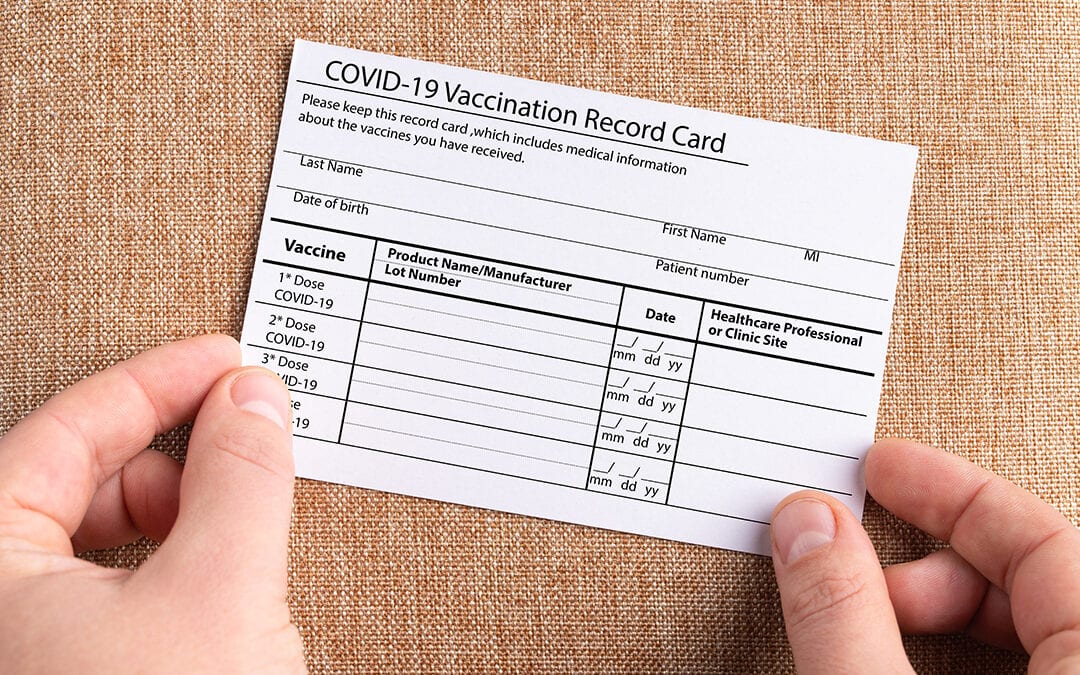What is your company’s vaccine policy, now that vaccines are here and the jabs underway?
Herein is what we’ve learned reviewing publications following the CDC, EEOC, OSHA and other regulatory entities about vaccination policies.
We’re not lawyers but like many business people during a pandemic, we need to monitor legal advice concerning risks to our firms. Rather than run up a legal bill, one good source we use for employer Covid-19 issue content is www.littler.com/covid-19, which covers both national and state-level policies. For the AEC industry specifically, the Construction Executive has a good article here.
Can You Make Covid-19 Vaccination Mandatory?
Whether you are in an essential industry or not, you can make vaccinations mandatory. Similar to health screening surveys and temperature taking, mandatory vaccinations are permitted for a work-related purpose of any person within your workplace’s operational perimeter.
But you do have to make accommodations for those with good reason to opt-out. These include medical conditions (e.g., allergies) and sincerely held religious beliefs (e.g., Christian Science). Political views are not generally allowed as an accommodation.
Because the COVID-19 vaccine is approved for “emergency use”, you cannot be held liable under the ADA. And a work-related health-screening is not considered to be “delivering” healthcare, and so is also exempt from HIPAA requirements.
Our take: Only firms with a compelling business reason should make vaccinations mandatory. For example, firms delivering services into healthcare facilities or senior living facilities, the same industries whose employees are higher up on the vaccine priority list.
Can You Require Proof of Vaccination?
You can, but there is no standard form of proof, so every person may respond differently. There is an effort to adopt a digital international standard for travel to replace the yellow vaccination proof cards currently in use (one is called “Commonpass”). But any standard is unlikely to be adopted everywhere soon.
That said, you’ll want to make sure that the proof provided to you does not contain additional personal health information. While you are exempt from HIPAA, protections of personally identifiable information are increasingly regulated worldwide, so don’t want to store anything more than an image of a vaccination proof.
Our take: Health screenings today almost always rely on surveys that assume workers and visitors and subcontractors answer the questions honestly, and that assumption should apply to vaccinations as well. Only firms with a very compelling business reason should require proof of vaccination.
If our program is voluntary, can I offer incentives?
Our take: Yes, and we think incentives are a good idea for both mandatory and voluntary policies. Besides increasing the rate of vaccination and decreasing the time to “herd immunity”, incentives communicate that a firm cares for the health and safety of their workers, visitors, customers and other stakeholders.
Consider cash, gift cards or some other benefits in kind, and encourage people to share “I got vaccinated”, although sharing must be voluntary.
How do you plan to communicate the policy to those covered and track compliance?
Whether mandatory or voluntary, you need to consider how you will communicate your vaccination policy to those affected.
Not everyone affected is an employee, so employee email is not sufficient. Your policy needs to be partially public, posted at your workplace entrances for visitors, service providers, customers, subcontractors, etc.
And because of the fast-changing nature of the pandemic, regulations and medical treatments, you need to be able to update the policy quickly and the situation changes.
Our take: Most all firms will find that a digital workplace check-in policy is ideal. Most all employees and workplace visitors now have a smartphone, so QR or bar-code solutions (like our safesitecheckin.com service) can perform health screenings, including vaccination-related questions, display your policies, and track compliance digitally without revealing personal health information.
It’s always prudent to check with your company’s attorney or legal advisor before implementing a policy.
How to use Safe Site Check In for Vaccinations
Safe Site Check In provides a flexible solution for managing site visitor entry information. There are several approaches to integrating customized vaccination related questions to meet your business needs:
- Add a Vaccination confirmation question as part of the check in process. In this scenario, the user is granted or denied access based on their response.
- Add fields that prompt the user to enter whether they have received a vaccination, and also vaccination dates, if desired.
- Add a custom term that the user must check, that acknowledges your site’s vaccination policy which can also include PDF attachments with vaccination policies and related information.
If these three options don’t meet all your needs, contact us via our Support page to get help.
If you are a Safe Site Check In customer, then you care about the health and safety of your workers and visitors. Vaccinations can bring us out of the pandemic, and businesses like yours need to lead the way.

David Brian Ward is a CEO and Founder of Safe Site Check In LLC, a digital jobsite management platform launched in 2020 for the Construction industry. With over 40 years of experience in the technology industry, having launched and grown several successful companies. Mr. Ward is a now a SaaS entrepreneur and innovation leader in the Construction industry.

